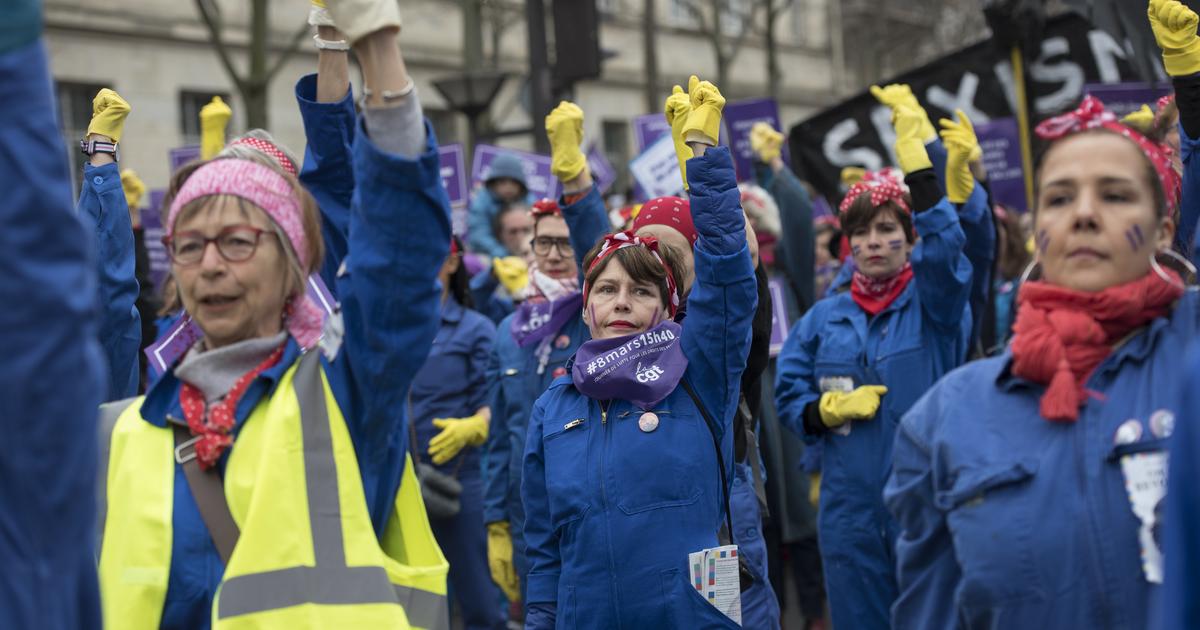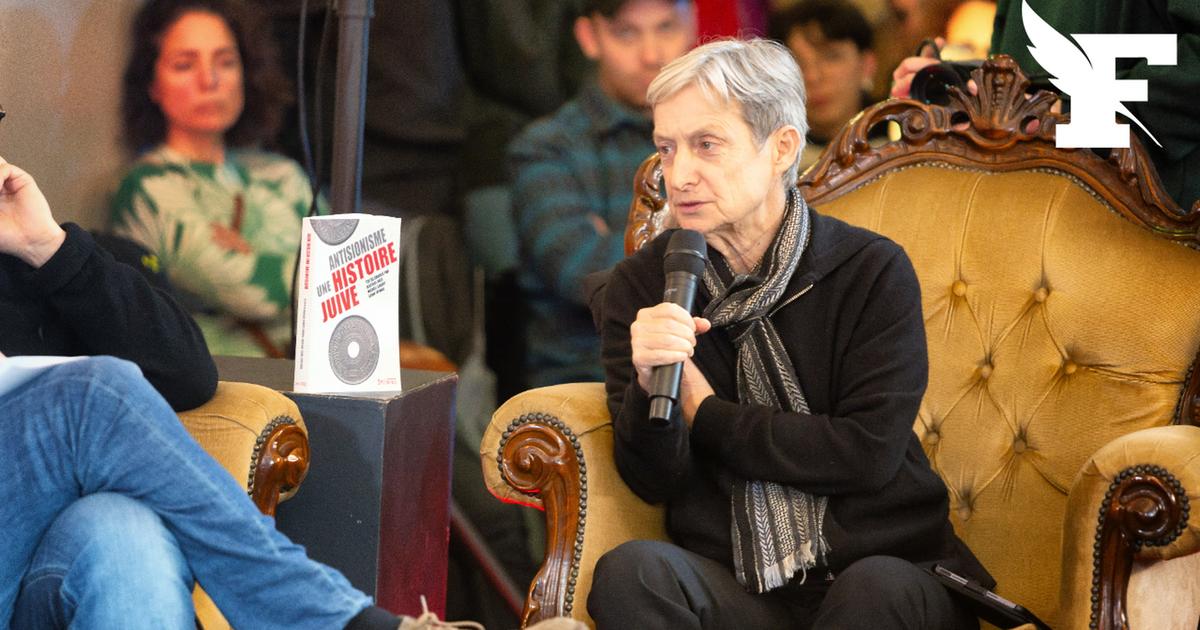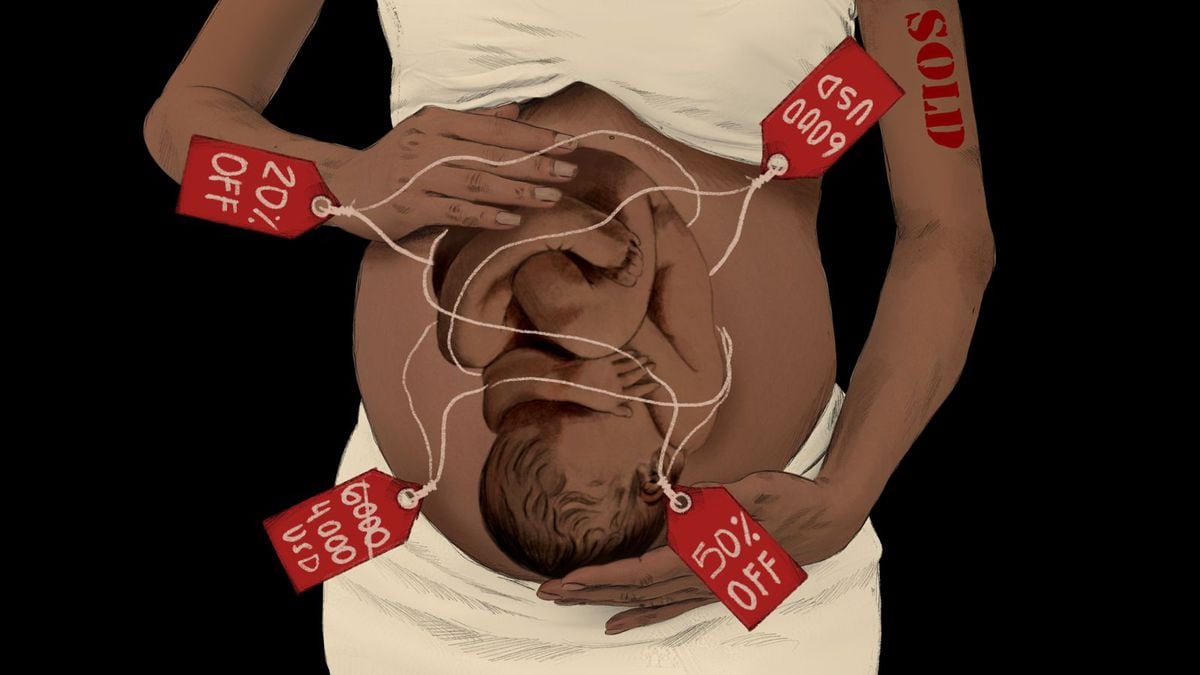Yvette Mushigo felt her years of activism, efforts and frustrations were worth it when her 16-year-old daughter publicly said at school that “if women's rights are respected, the whole society benefits”.
“That day I said to myself: 'I have done something well, I have planted something' because she, a new generation, has understood everything”, explains this Congolese jurist in an interview with this newspaper in Madrid.
Yvette Mushigo, 45, was born in a country where "a woman informed about her rights is seen as a threat" and for this reason, she has spent her entire life navigating between conflicts.
Armed conflict, because its region, the eastern Democratic Republic of the Congo (DRC), has been the scene of violence and the field of action of different armed groups for more than 25 years and is currently experiencing an alarming and bloody outbreak of confrontations.
Social conflict, because her work consists of giving women strength and rights, denouncing the crimes committed against them and emphasizing that they are an essential part of reconciliation.
And internal conflict, because she tries that her demanding work and her travels do not harm her husband and four children or make them the object of criticism within the community.
According to the UN, more than 5.6 million people have been displaced by the conflict in the DRC, a record number in Africa.
“The conflict is permanent.
Now in my region we live with several national and foreign armed groups and we are witnessing a resurgence of violence that has serious consequences for the population and especially for women.
In some areas, people are at the mercy of these armed groups.
You go down a road and they tell you: 'From here on, neither the police nor the Congolese army are there anymore.'
We want to reach the women in these areas and assist them, but sometimes there is no practicable path, there is a high risk of kidnapping and we can't get there," laments Mushigo, coordinator of the organization Synergie des Femmes pour la Paix et la Réconciliation ( Synergy of Women for Peace and Reconciliation), which brings together more than 40 humanitarian entities from the DRC, Burundi and Rwanda.
Since last year, the March 23 Movement (M23) armed group, managed by Rwanda, according to the Congolese government and the UN, has managed to occupy a part of the territory of North Kivu, in the east of the country.
The trickle of killings, violence and displacement in this region and other neighboring ones like Ituri is almost daily.
According to the United Nations High Commissioner for Refugees (UNHCR), the more than two decades of conflict have caused more than 5.6 million displaced people in the country, a record number in Africa and one of the highest in the world. .
In North Kivu alone, 2.1 million people have been forced to leave their homes and seek refuge elsewhere in the country.
The violence is fueled by the immense mineral wealth of this region, where there is coltan, cobalt, copper, uranium, gold or diamonds,
and because of the distance from the country's capital, Kinshasa.
Mushigo stresses that part of these armed groups is concentrated around mining operations, which shows that "the essence of the conflict is economic."
We are cross-border cities, we all live together and this political situation poisons us
Yvette Mushigo, Congolese lawyer and activist
Achievements paralyzed by violence
The deterioration of security conditions in the east of the country is transforming the work of this activist and her organization.
For example, for the last three years, the Congolese, Burundian and Rwandan leaders have not been able to meet in the same room due to the distrust that these trips generate in their communities in this context of violence.
"We are cross-border cities, we all live together and this political situation poisons us," protests Mushigo, who is in Madrid to receive the Mundo Negro Fraternity 2022 award on Saturday.
The flight of the population has also caused the interruption of various care programs for women.
“In some parts of the eastern part of the country, people have left and what we had built with these people has vanished.
Now we are considering what to do: do we follow the displaced on their way?, do we start from scratch in another town? no assistance, which increases the risks of sexual violence.
On the other hand, the endless conflict and security conditions have caused international organizations to leave the country and humanitarian aid to be reduced, which is "a tragedy for the population."
“Those who help us from outside are tired and demoralized by that feeling of always having to start over.
We are also fed up.
I try not to succumb and concentrate on the amount of work I have left, on how to face it and do it better", she affirms, explaining that she sees the award she is going to receive in Spain as recognition of the work of many "brave women who have broken the silence and fight against all odds to defend their rights and those of other women.”
In this context of violence, presidential elections will be held at the end of the year, in which the current Congolese president, Félix Tshisekedi, aspires to be re-elected despite his tepid record.
“We are concerned because we do not know how the displaced population will be able to receive their voter card and exercise their rights.
If it is already difficult to have it when you are at home...", sighs the activist.
We are a threat to certain men, who forbid us to contact their wives
Yvette Mushigo, Congolese lawyer and activist
Mushigo's hope is local elections, long planned and postponed for various reasons, because they may allow women who are already de facto leaders in their communities to access public office.
"They have an authority in the community and have become a reference because they provide solutions to the specific problems of many people."
Officially electing them as representatives would mean a great change in a country that has exemplary parity laws that, sadly, remain on paper.
For example, the current government has 27% women, something unprecedented but insufficient, according to the activist.
And female representation in regional or legislative bodies is even lower.
“The Government has not understood that it must protect our rights.
It becomes clear when they don't appoint women to certain positions, as if we weren't competent enough”, criticizes Mushigo, stressing that the new generations of women are struggling to find a place in society, but are still very absent from universities and the job market. .
Peace beyond politics
“There will be no peace if women do not have rights.
Because our idea of peace goes beyond conflict and politics.
For some women, peace may be being well with her husband or having food for her children.
Not owning our rights causes insecurity and makes us feel disarmed: how are we going to produce, how are we going to participate in the life of our country if we are not recognized? ”, insists the lawyer, without losing the serene tone that permeates her speech .
In this complicated path that Mushigo has been traveling for years, she and other representatives of the organization have been afraid, have fled from certain towns and have seen themselves "marked for revolutionizing women."
“We are a threat to certain men, who prohibit us from contacting their wives.
We are scared because we do not know who is armed in certain communities and we have to be discreet in our movements, not communicate our agenda, arrive without warning and leave earlier, sleep in places that we do not make public...", he lists.
But in these years they have also celebrated small victories, especially when men understand that they have a lot to gain in this process.
“For example, in my country there are many free unions in which the woman suffers greater violence and can be thrown out of the house without consideration.
Some time ago a man who had just married his partner came to speak to me after 17 years of living together and he thanked me because he had realized the danger to which he had exposed his wife and his children.
He had understood that if anything happened to him, his brothers would throw his wife and children out of the house and he couldn't allow it.
That's why he got married, ”he recalls.
And who does the dishes in your house?
The question provokes a laugh from Mushigo: “We all have our responsibilities.
Before, my children were surprised because their father removes their plate from the table after eating, because none of their friends' fathers did it”.
You can follow PLANETA FUTURO on
,
and
, and subscribe
here
to our 'newsletter'
.

/cloudfront-eu-central-1.images.arcpublishing.com/prisa/R6QOU5NAZ2YFWZC6O6DCSUAEOA.jpg)



/cloudfront-eu-central-1.images.arcpublishing.com/prisa/NXAN6ORR7JECNIMY7N6WRPH3XA.jpg)



